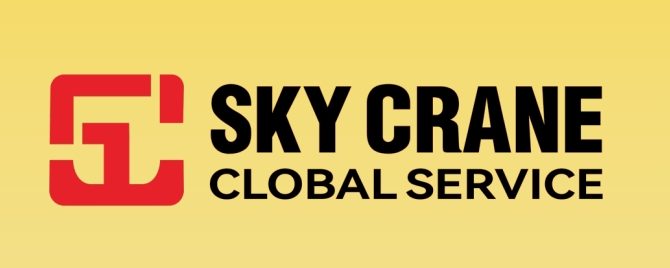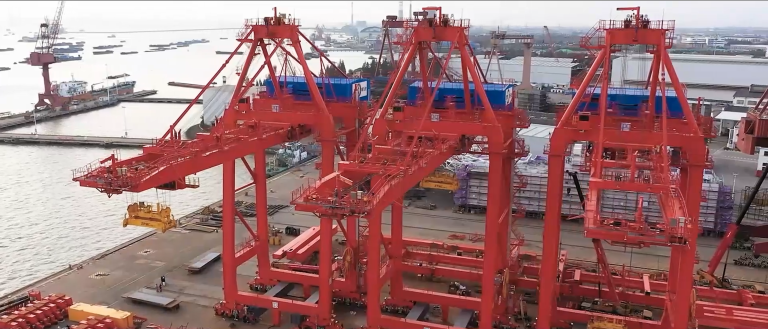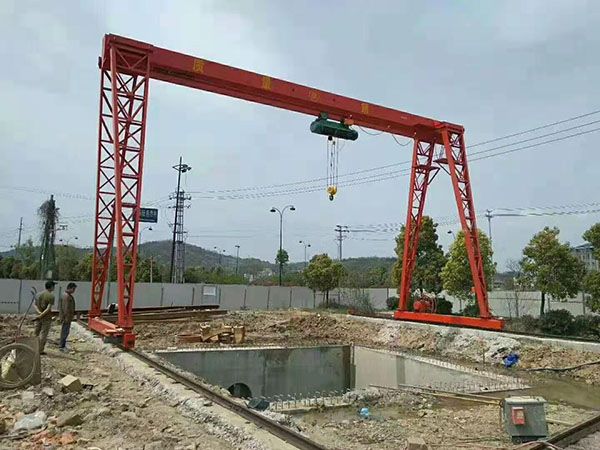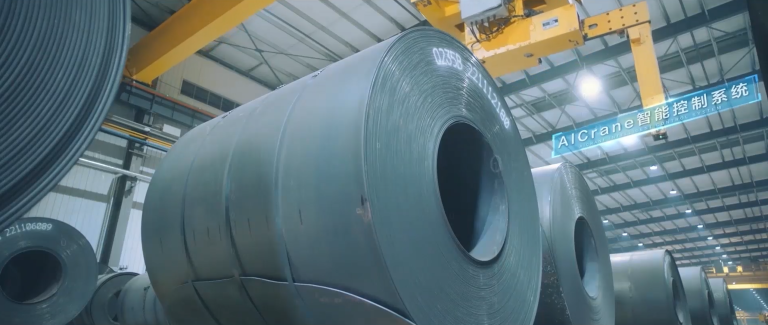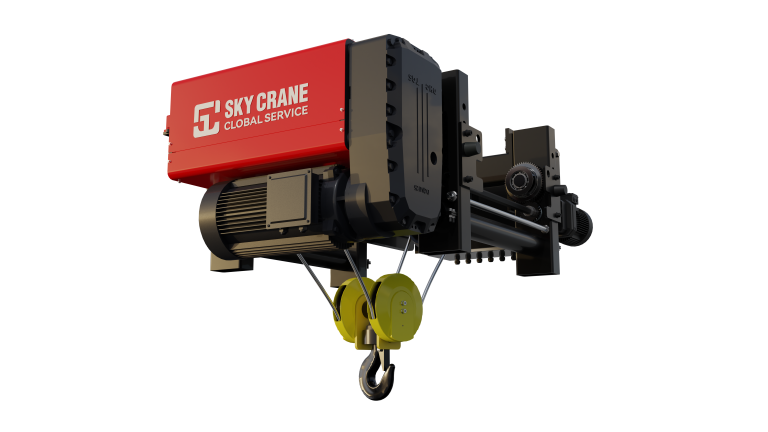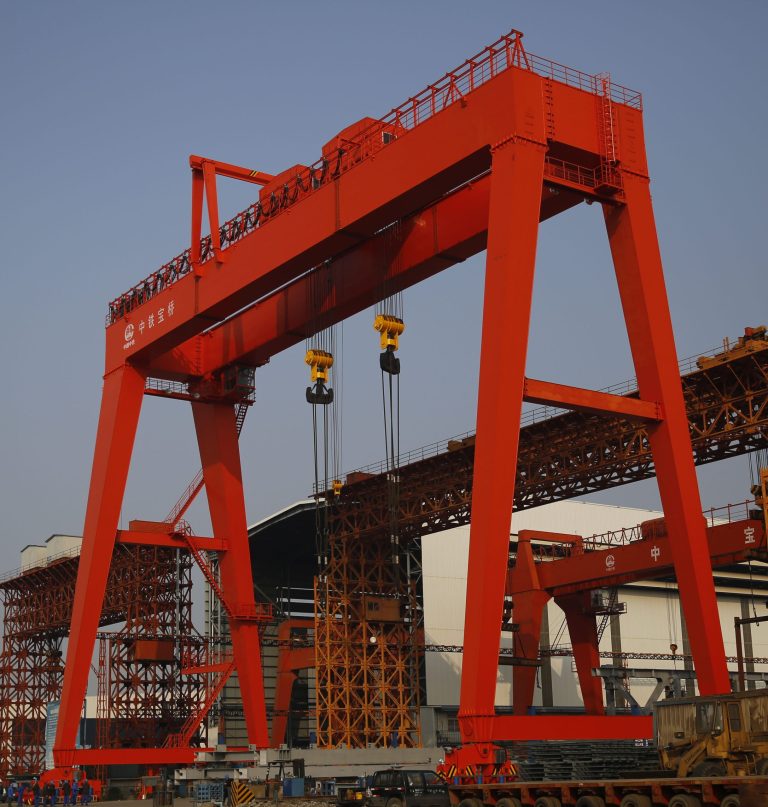Table of Contents
Benefits of Using Wire Rope Blocks in Industrial Factories
Wire rope blocks are an essential component in industrial factories, providing a reliable and efficient means of lifting and moving heavy loads. These blocks are made up of a pulley system with a wire rope running through it, allowing for smooth and controlled movement of materials. There are several benefits to using wire rope blocks in industrial factories, including increased safety, improved efficiency, and cost savings.
One of the primary benefits of using wire rope blocks in industrial factories is the increased safety they provide. The pulley system allows for precise control over the movement of heavy loads, reducing the risk of accidents and injuries. By using wire rope blocks, workers can safely lift and transport materials without putting themselves or others at risk. Additionally, the wire rope itself is designed to withstand high levels of tension and stress, further enhancing the safety of the lifting process.
In addition to safety, wire rope blocks also offer improved efficiency in industrial factories. The pulley system allows for easy and smooth movement of materials, reducing the time and effort required to lift and transport heavy loads. This increased efficiency can lead to higher productivity levels and faster turnaround times for projects. By using wire rope blocks, factories can streamline their operations and maximize their output.
Furthermore, using wire rope blocks in industrial factories can result in cost savings. The durable construction of wire rope blocks means they have a long lifespan and require minimal maintenance. This can help reduce the need for frequent repairs or replacements, saving factories money in the long run. Additionally, the efficiency of wire rope blocks can lead to lower labor costs, as workers can complete tasks more quickly and with less effort. Overall, investing in wire rope blocks can be a cost-effective solution for industrial factories looking to improve their lifting and transportation processes.
Another benefit of using wire rope blocks in industrial factories is their versatility. These blocks can be used in a variety of applications, from lifting heavy machinery to transporting materials across a factory floor. Their flexibility makes them a valuable tool for a wide range of industries, including manufacturing, construction, and logistics. Whether lifting large loads or moving materials over long distances, wire rope blocks can handle the job with ease.
In conclusion, wire rope blocks are an essential component in industrial factories, offering a range of benefits including increased safety, improved efficiency, cost savings, and versatility. By investing in wire rope blocks, factories can enhance their lifting and transportation processes, leading to higher productivity levels and a safer work environment. With their durable construction and reliable performance, wire rope blocks are a valuable asset for any industrial factory looking to optimize its operations.
How to Choose the Right Wire Rope Block for Your Factory
Wire rope blocks are essential tools in many industrial settings, including factories. These blocks are used to lift and move heavy loads, making them a crucial component of any manufacturing operation. However, with so many options available on the market, choosing the right wire rope block for your factory can be a daunting task. In this article, we will discuss some key factors to consider when selecting a wire rope block for your factory.
One of the first things to consider when choosing a wire rope block is the weight capacity. It is important to select a block that can safely handle the weight of the loads you will be lifting. Overloading a wire rope block can lead to catastrophic failure, causing damage to equipment and posing a serious safety risk to workers. Be sure to carefully assess the weight of the heaviest loads you will be lifting and choose a wire rope block with a weight capacity that exceeds this amount.
In addition to weight capacity, it is also important to consider the size and construction of the wire rope block. The size of the block should be appropriate for the space in which it will be used, ensuring that it can be easily maneuvered and operated. The construction of the block should be durable and able to withstand the rigors of daily use in a factory setting. Look for blocks made from high-quality materials such as steel or aluminum, as these materials are known for their strength and longevity.

Another important factor to consider when choosing a wire rope block is the type of sheave. The sheave is the wheel around which the wire rope is wound, and it plays a crucial role in the block’s performance. There are several different types of sheaves available, including single, double, and triple sheaves. Single sheaves are suitable for lighter loads, while double and triple sheaves are better suited for heavier loads. Consider the weight of the loads you will be lifting and choose a wire rope block with the appropriate sheave type.
When selecting a wire rope block for your factory, it is also important to consider the operating environment. Some blocks are designed for use in harsh conditions, such as extreme temperatures or corrosive environments. If your factory operates in a challenging environment, be sure to choose a wire rope block that is specifically designed to withstand these conditions. This will help ensure the longevity and performance of the block in your factory setting.
Finally, consider the reputation of the manufacturer when choosing a wire rope block for your factory. Look for manufacturers with a proven track record of producing high-quality, reliable products. Reading reviews and testimonials from other customers can help you gauge the quality of a manufacturer’s products and customer service. Choosing a reputable manufacturer will give you peace of mind knowing that you are investing in a reliable and durable wire rope block for your factory.
In conclusion, choosing the right wire rope block for your factory is a crucial decision that should not be taken lightly. Consider factors such as weight capacity, size, construction, sheave type, operating environment, and manufacturer reputation when making your decision. By carefully assessing these factors, you can select a wire rope block that meets the needs of your factory and ensures the safety and efficiency of your operations.
Maintenance Tips for Wire Rope Blocks in Factory Settings
Wire rope blocks are essential components in factory settings, used for lifting and moving heavy loads. These blocks consist of a pulley or sheave mounted on a frame with a hook or shackle for attaching the load. Proper maintenance of wire rope blocks is crucial to ensure their safe and efficient operation in industrial environments.
| No. | Product Name |
| 1 | QD OVERHEAD CRANE WITH HOOK CAP.5-800/150T |
| 2 | MH rack crane |
| 3 | European-style crane |
| 4 | Harbour crane |
One of the key maintenance tasks for wire rope blocks is regular inspection. Inspecting the block for signs of wear, damage, or corrosion is essential to prevent accidents and ensure the longevity of the equipment. Look for any cracks, bends, or deformations in the frame, sheave, or hook, as these can compromise the block’s strength and safety.
In addition to visual inspection, it is important to check the wire rope for any signs of wear or damage. Look for broken strands, kinks, or corrosion on the wire rope, as these can weaken the rope and lead to failure under load. Replace any damaged wire rope immediately to prevent accidents and ensure the block’s safe operation.
Another important maintenance task for wire rope blocks is lubrication. Proper lubrication of the sheave and bearings is essential to reduce friction and wear, prolonging the life of the block. Use a high-quality lubricant recommended by the manufacturer and apply it regularly to ensure smooth operation of the block.
Regularly check the block’s load rating and never exceed the maximum capacity specified by the manufacturer. Overloading the block can lead to catastrophic failure and accidents, so it is important to always use the block within its rated capacity. If you need to lift a heavier load, use a block with a higher capacity to ensure safety.
Proper storage of wire rope blocks is also important for their maintenance. Store the blocks in a clean, dry, and well-ventilated area to prevent corrosion and damage. Avoid storing the blocks near chemicals, moisture, or extreme temperatures, as these can degrade the materials and compromise the block’s integrity.
When using wire rope blocks, always follow the manufacturer’s instructions and guidelines for safe operation. Inspect the block before each use, and never use a block that shows signs of wear or damage. Ensure that the load is properly attached to the block and that the block is securely anchored to a stable structure before lifting any loads.
In conclusion, proper maintenance of wire rope blocks is essential to ensure their safe and efficient operation in factory settings. Regular inspection, lubrication, and storage are key maintenance tasks that can help prevent accidents and prolong the life of the equipment. By following these maintenance tips and guidelines, you can ensure the safety and reliability of wire rope blocks in your factory.
